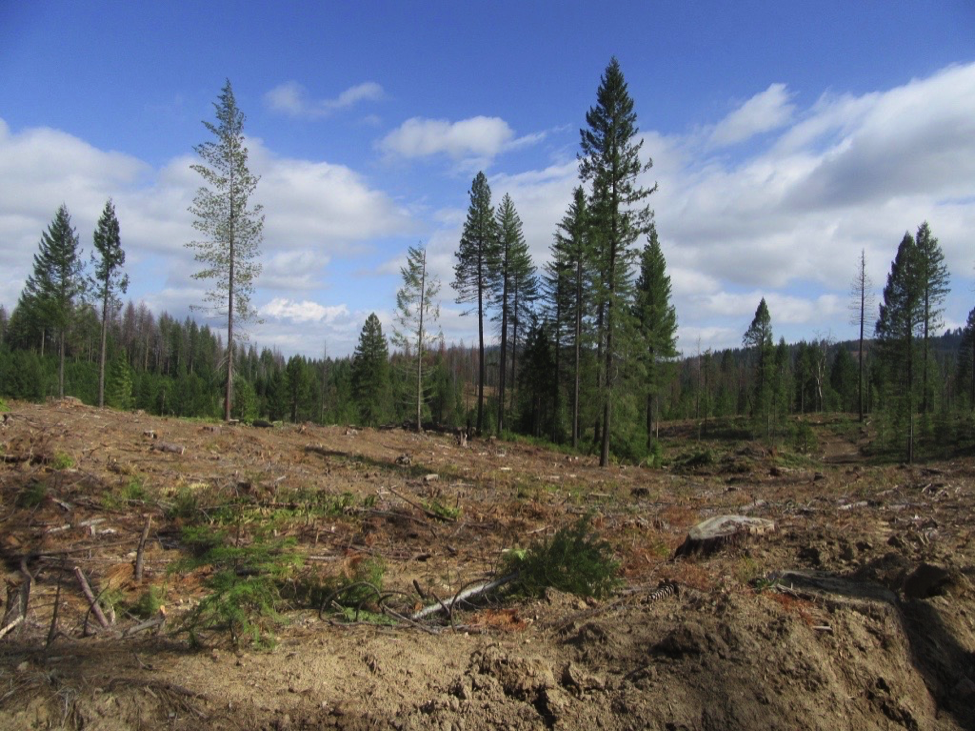
Sierra Pacific Industries (SPI) has filed two separate Timber Harvest Plans with the state - the Village THP and the Sour Boards THP - that together would result in extensive logging of 1,269 acres of SPI’s private timberlands near Camp Connell, Dorrington, Big Trees Village, Boards Crossing, and other areas on both sides of the North Fork Stanislaus River. While SPI gets state approval for many logging plans (THPs) each year, these two current plans have gained public attention because logging is proposed directly adjacent to many residential properties.
As CSERC staff has shared with reporters who have focused on these logging plans, SPI actually is planning less aggressive logging treatments in a broad strip adjacent to the residential properties than the company does in its typical logging plans. A long swath of forest will be treated with a Fuelbreak treatment prescription -- leaving roughly 1/3 of the basal area of the conifers that currently are growing on the Fuelbreak acreage. For residential property owners who have enjoyed attractive forest habitat next door on SPI’s land for many years, the Fuelbreak logging treatment may still be a shock. But CSERC gives SPI credit for choosing a logging treatment near the residences that will reduce fuels and will open up dense forest stands, while still retaining conifers to create the shaded fuelbreak.
In other areas, SPI plans to do “Alternative” logging treatments on 20-acre blocks of forest upslope from Highway 4 or and in areas upslope from the river on sites not readily visible to residents of the area. Alternative logging treatments are similiar to clear-cuts, but a scattering of some trees may be left to soften the visual impacts.
In comments our staff submitted in response to the two logging plans, CSERC continued to urge the State and SPI to modify the clear-cut type logging plans so as to leave at least some large conifers and more oaks for wildlife, and to also minimize herbicide treatments in order to protect vulnerable plant species and water quality.

